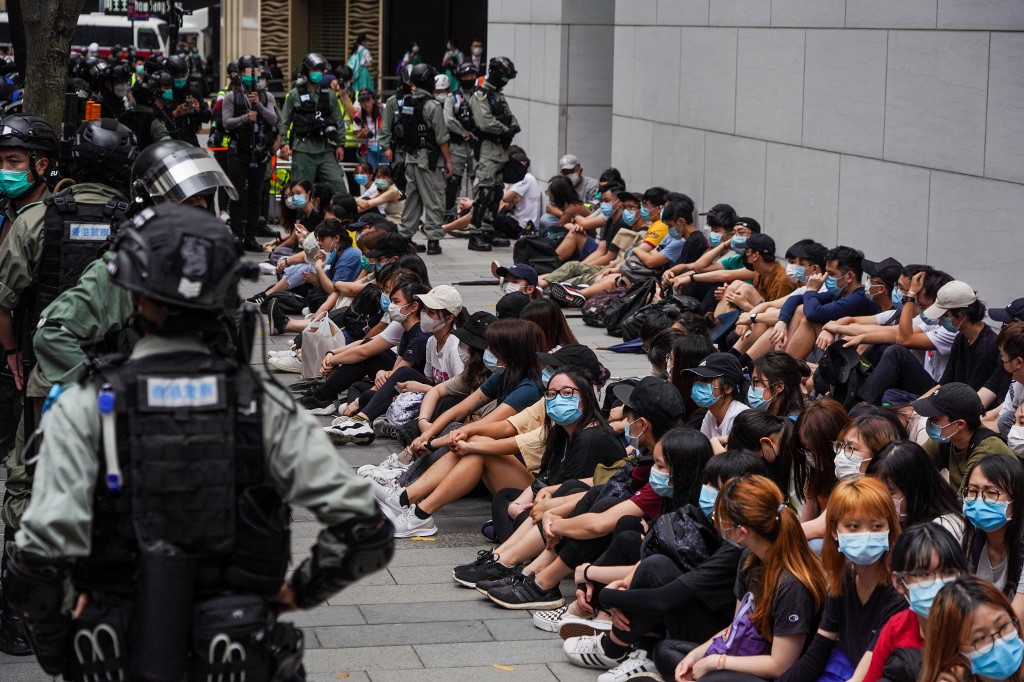(ATF) Hong Kong: Financial markets are bracing for further tensions as US President Donald Trump has said he will unveil sanctions over Beijing’s move to curtail Hong Kong’s autonomy. That concern dampened sentiment on the eve of a meeting of Beijing lawmakers to impose a national security law on citizens in Hong Kong.
Hong Kong was back in the investor spotlight today, when police fired pepper pellets at protestors who rallied in the city’s main business district. Street protests have resumed since China proposed a new national security law late last week, plus a bill that would criminalise disrespect toward the Chinese national anthem.
These rising tensions offset optimism from a Reuters report that Japan is planning a fresh stimulus package worth $1.1 trillion on top of a $1.1 trillion package already rolled out last month.
Hong Kong’s Hang Seng index dipped 0.36% after the street protests, the CSI 300 was down 0.7% amid threats of US sanctions but Japan’s Nikkei 225 benchmark surged 0.7% after the report about the government’s stimulus plan.
Credit markets remain firm and the primary market was active with the Asia IG index tighter by 2-1/2 basis points at 102/103 bps and most sovereign CDS moved in by 2-3 basis points. Vietnam was the outperformer, shrinking by 10 bps to 210/240. China underperformed with the 5-year contract widening by a basis point to 50/52bps.
Industrial profits still down
Meanwhile, data from China showed profits at industrial firms fell in April but the pace of the decline was slower at 4.3% year on year versus 34.9% in March. Some of the improvement was due to higher investment income, the National Bureau of Statistics said.
“It should be noted that although the profit situation of industrial enterprises above the designated size improved significantly in April , the cumulative profits of industrial enterprises are still greatly reduced due to multiple factors such as the market demand has not fully recovered, the price of industrial products has continued to fall, and the cost pressure is still large,” Zhu Hong, senior statistician at the National Bureau of Statistics’ Department of Industry, said.
“The profit situation is not optimistic. In the next stage, we must continue to thoroughly implement the decision-making and deployment of the Party Central Committee and the State Council.”
Financial markets are watching the ongoing meeting of China’s parliament, the National People’s Congress, closely to see if there are any further reforms in the financial services sector as the focus remains on job creation.
Also on Asia Times Financial:
China’s digital push could help internationalise the yuan
Coronavirus takes another bite out of corporate profits
China keen to beef up laws against bond, securities fraud
Foreign Exchange: Yuan decline accelerates. Whodunnit?
Asia Stocks
· Japan’s Nikkei 225 jumped 0.7%
· Australia’s S&P ASX 200 dipped 0.1%
· Hong Kong’s Hang Seng index fell 0.36%
· China’s CSI300 slipped 0.7%
· The MSCI Asia Pacific index %rose 0.63.
Stock of the day
Drugmaker CSPC Pharmaceuticals rose as much as 9.7% after it declared a 21.8% rise in net profit and plans to list on the Science and Technology Innovation Board of the Shanghai Stock Exchange. Valuations on this exchange tend to be higher because of the nature of the companies listed there.
























